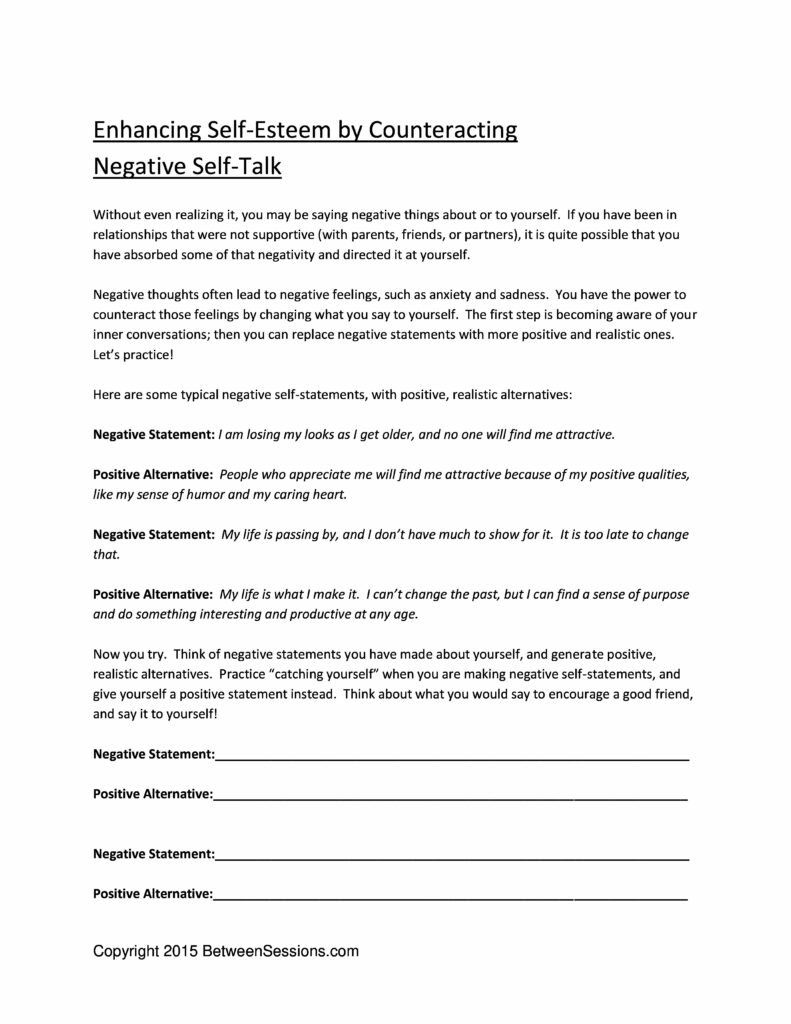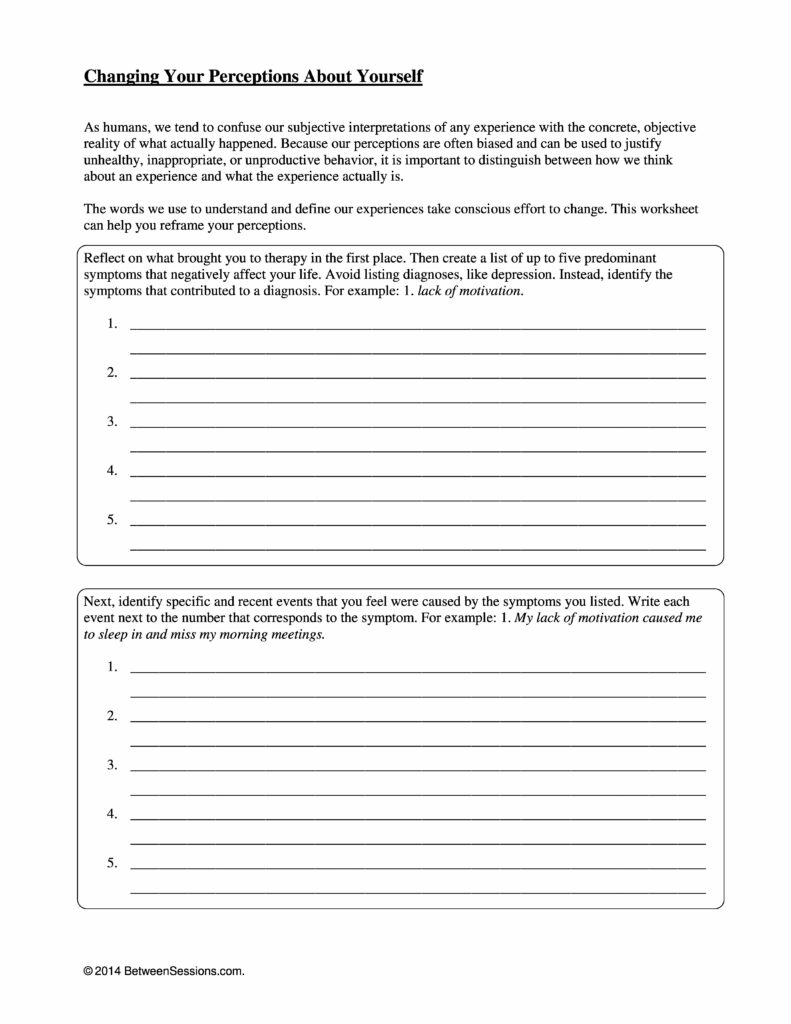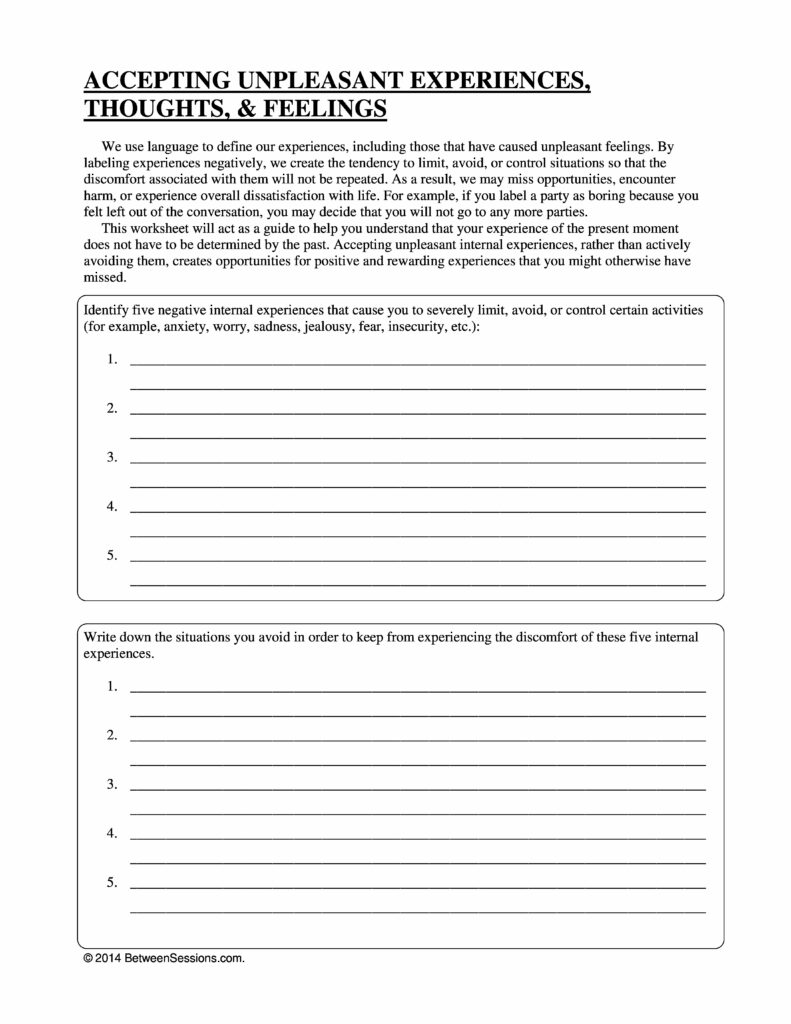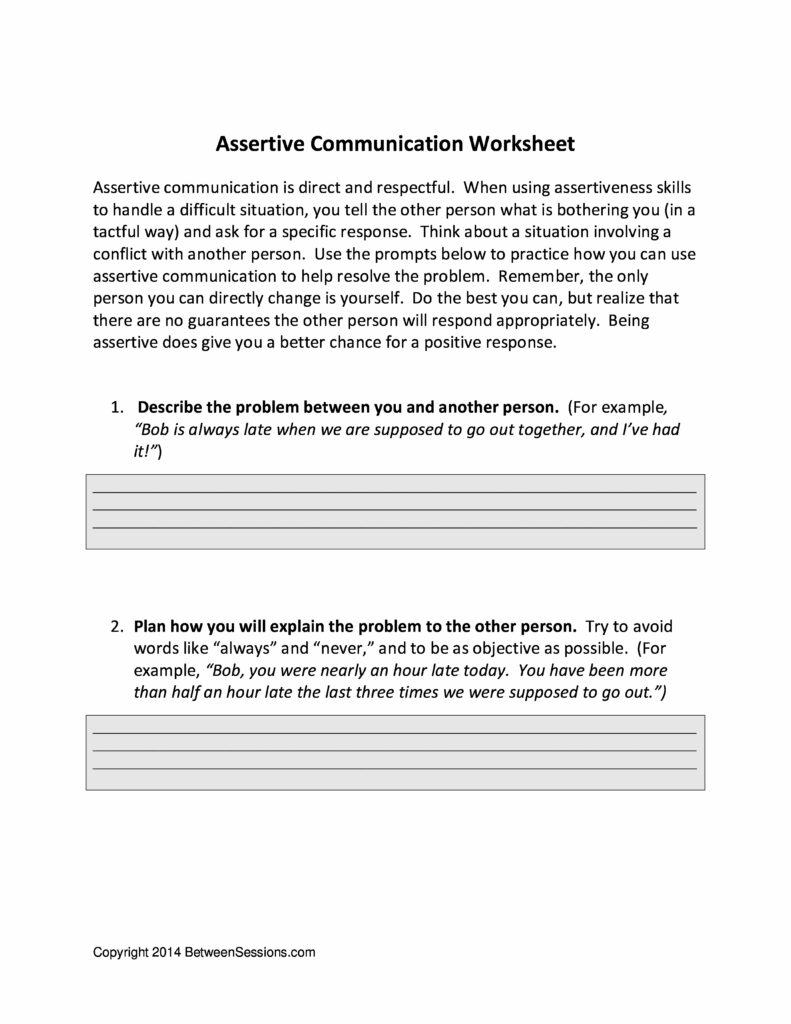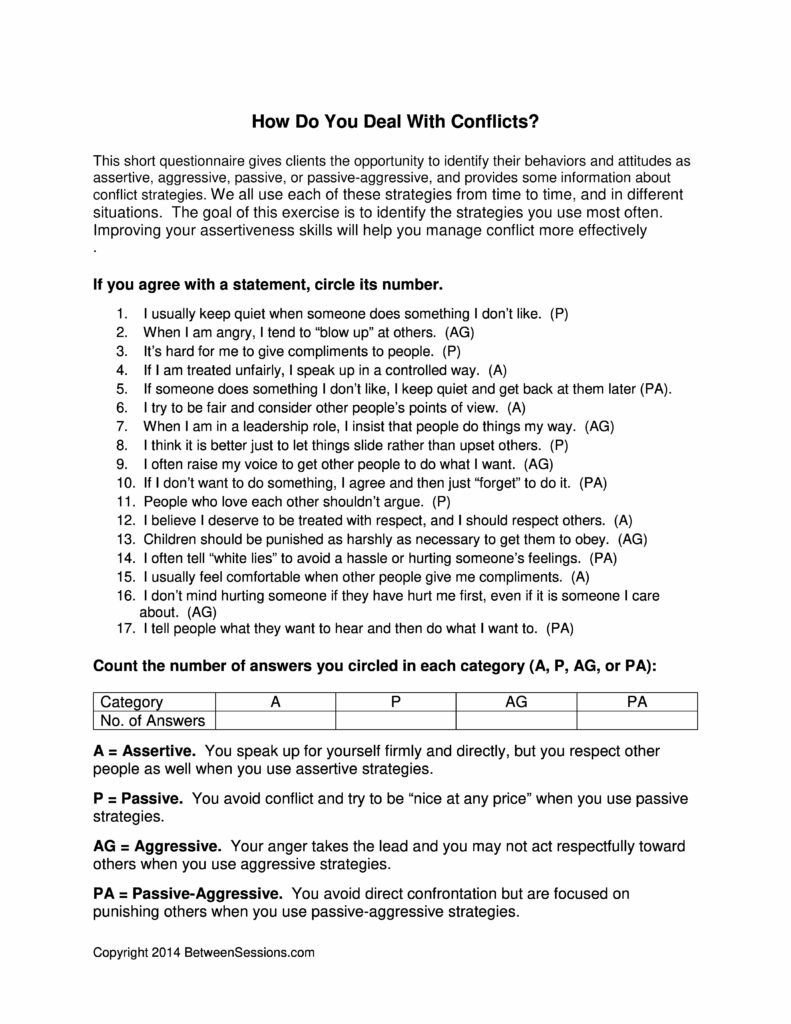Rooted in the work of Dialectical Behavior Therapy (DBT), this worksheet is designed to help clients let go of their style of negatively judging others, and to help them understand the negative effects of these thoughts and their associated behavior. (DBT, judgment, 0215)
This worksheet can help people identify and change the negative self-talk that can lead to low self-esteem.(self-esteem, negativity, 0215)
This worksheet presents strategies to help people recovering from the break-up of a relationship and encourages them to come up with their own coping techniques. (divorce, relationships, coping strategies, 1115)
This worksheet asks clients to think about themselves objectively, based on the facts in their lives rather than on a subjective interpretation of their experiences. This exercise is derived from Acceptance and Commitment Therapy (ACT, 1114).
This worksheet, derived from Acceptance & Commitment Therapy (ACT), is designed to help people accept unpleasant internal experiences, and not use them as an excuse to avoid life-affirming situations.
This worksheet is a Narrative Therapy technique which can be used to help clients get more perspective on their presenting problem and see that they have the power to change their “life story.” (narrative, therapy, problem-solving, 1114)
This exercise is designed to help clients communicate positive aspects about their lives. The technique is derived from Narrative Therapy. (1114)
This dice game can be printed on heavy stock paper and then assembled. It is a fun game designed to enhance family communication. The blank die makes it easy to customize the game for many purposes. Type: PDF (1014)
This worksheet helps clients to identify a conflict, describe it in nonjudgmental terms, explain how the other person’s behavior has affected them, and ask for a specific response.
This short questionnaire gives clients the opportunity to identify their behaviors and attitudes as assertive, aggressive, passive, or passive-aggressive, and provides some information about conflict strategies. (conflict management, communication)


